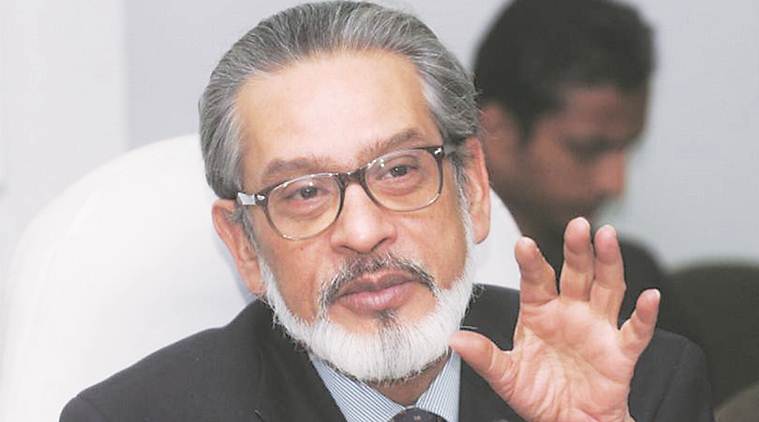 “Attacks on field investigators of the NSS (National Sample Survey) is not new. It has happened before, essentially when they asked questions on either household incomes or household assets,” said Pronab Sen.
“Attacks on field investigators of the NSS (National Sample Survey) is not new. It has happened before, essentially when they asked questions on either household incomes or household assets,” said Pronab Sen.
Amid rising instances of field enumerators coming under attack across at least three states for some of the ongoing NSS surveys and gathering mistrust over CAA and NRC, the house-listing operation and the updation of the National Population Register (NPR), set to begin in April for Census 2021, could run into rough weather.
The survey system is already in “deep trouble” and given the increasing instances of such attacks, conducting household surveys with the Census as the frame would be “very tough” going ahead, Pronab Sen, former Chief Statistician of India and Country Director for the India Programme of the International Growth Centre, said.
“Attacks on field investigators of the NSS (National Sample Survey) is not new. It has happened before, essentially when they asked questions on either household incomes or household assets…so, this has happened earlier, but not too often, because over time people got fairly comfortable knowing that NSS surveys happen. But this time what is new is that first, you are going to have the population register starting with the (Census) house listing operations. The house-listing operation is a key step in our critical analysis because that’s the basis on which the entire country is divided into enumeration blocks and then, the Census enumerators are given specific enumerator blocks. So, the enumeration blocks are at the heart of the Census operation. If you have problems in getting that done and if you get resistance to that, the Census is in deep trouble,” Sen who heads the newly formed Standing Committee on Economic Statistics, told The Indian Express.
“So, you may well have a situation where you are unable to do the Census properly and if the Census (exercise) is not done properly, then for the next 10 years, no household survey would be reliable because all household surveys rely on the Census as the frame. If this (Census) runs into problems, and there’s a danger that it might, then for the next 11 years, you are in trouble,” he added.
Amid the backdrop of protests and rallies on the new citizenship law (CAA-NRC), National Sample Survey Office (NSSO) field officials have been attacked in some areas of Kerala, Uttar Pradesh, Andhra Pradesh and West Bengal.
Sen said that this could have an effect not just on the Census but on other surveys as well. “There’s a second problem. Whatever you do, you are going to have people who will be suspicious. They may answer the expenditure part of it accurately, but the front part, which is household characteristics, they may resist that. All household details, begins with asking household members, names, ages, educational details, so all that is in the first sheet. And what may end up happening is that the data might get contaminated pretty badly…it’s a huge problem. We may still be able to get enterprise surveys done but we are in deep trouble for household surveys,” he said.
 Pronab Sen said one of the possible solutions for the problem could be to cut down the questions to the bare minimum for the Census
Pronab Sen said one of the possible solutions for the problem could be to cut down the questions to the bare minimum for the CensusThe next household survey, Consumption Expenditure Survey for 2020-21, mapping the consumption expenditure pattern of households, is scheduled to start in July this year.
Sen said one of the possible solutions for the problem could be to cut down the questions to the bare minimum for the Census. “The only hope that we have is that for the house-listing operation, cut that form down. A lot of stuff is collected in the form, just cut it down to the bare minimum that you need for the Census. And all you actually need for the Census is how many people, that’s all you need. So in each house or each location, you need to know how many people are there. That’s the basic knowledge,” he said.
State governments are learnt to have offered police protection for the field enumerators, something Sen said only adds to the problem. “It’s even worse because all of these surveys really depend upon the rapport between the investigator and the respondent…you land up with a bunch of cops, you are not going to get data worth anything,” he said.
Officials from the Ministry of Statistics and Programme Implementation (MoSPI), which is the overseeing ministry for NSSO, said the Ministry is approaching the state governments for assistance in conducting these surveys. “We are trying to address the issue by briefing the officers along with writing to the chief secretaries of states,” one official said.
On the issue of police protection, the official said that may not be feasible. “When you see police personnel along with enumerators, the quality of data gets affected. So we are looking at ways and means, either defer it for some time or work around it,” the official said.
At present, field work is ongoing for the Seventh Economic Census and Domestic Tourism Survey. The house-listing operation and the NPR is scheduled to be conducted in a period of 45 days during April-September in different states and union territories.